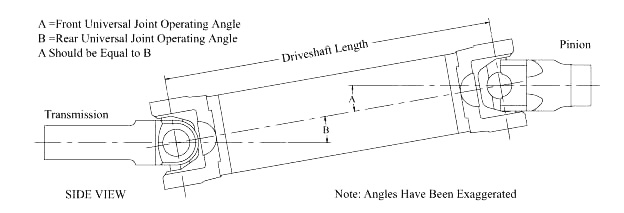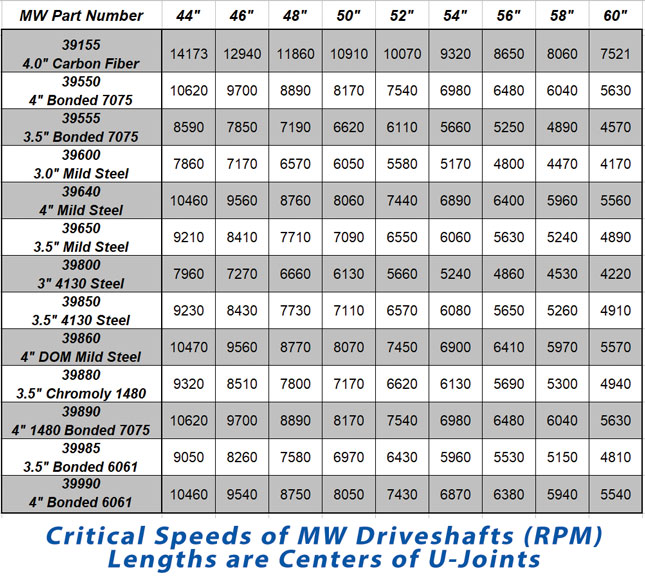Toll Free: 1-866-508-6394
OR Contact Us
OR Contact Us
Shop by Category
Operating Angle | ||
| Operating angles in a driveshaft are the angles between the pinion, driveshaft and transmission centerlines. The optimal angle for any driveshaft to run at is 1/2 degree, where many vibrational and frictional problems are non-existent. In order to minimize power loss and vibration in an offset configuration, the pinion centerline and the transmission centerline need to be parallel. In general, the largest angle for racing applications should 2 degrees and the centerlines should be parallel within 1/2 degree. With suspension movement the operating angle will increase, but should not exceed 15 degrees. If the centerlines are off too far, the u-joints travel at uneven operating velocities, causing vibration (this is the same problem induced by poorly phased end yokes). This vibration is hard to distinguish from an unbalanced driveshaft. | ||
 | ||
 | ||
Driveshaft Angles Explained | ||
 | ||
Critical Speed | ||
| Critical speed is the speed at which a spinning shaft will become unstable. This is one of the single largest factors in driveshaft selection. When the whirling frequency and the natural frequency coincide, any vibrations will be multiplied. So much that the shaft may self destruct. Another way to think of this is that if a shaft naturally vibrates at 130 times a second, and one point on the shaft passes through 0 degrees 130 times a second (7800 RPM) then the shaft has hit a critical speed. There are several ways to raise the critical speed of a driveshaft. You can make it lighter, stiffer, or increase diameter without increasing weight. This is the reason carbon fiber makes a good driveshaft, it is stiff and light and can be made to any diameter or wall thickness. Aluminum, while it has a very good critical speed is not quite as strong as steel. Steel, with good strength characteristics will have a lower critical speed. | ||
 | ||